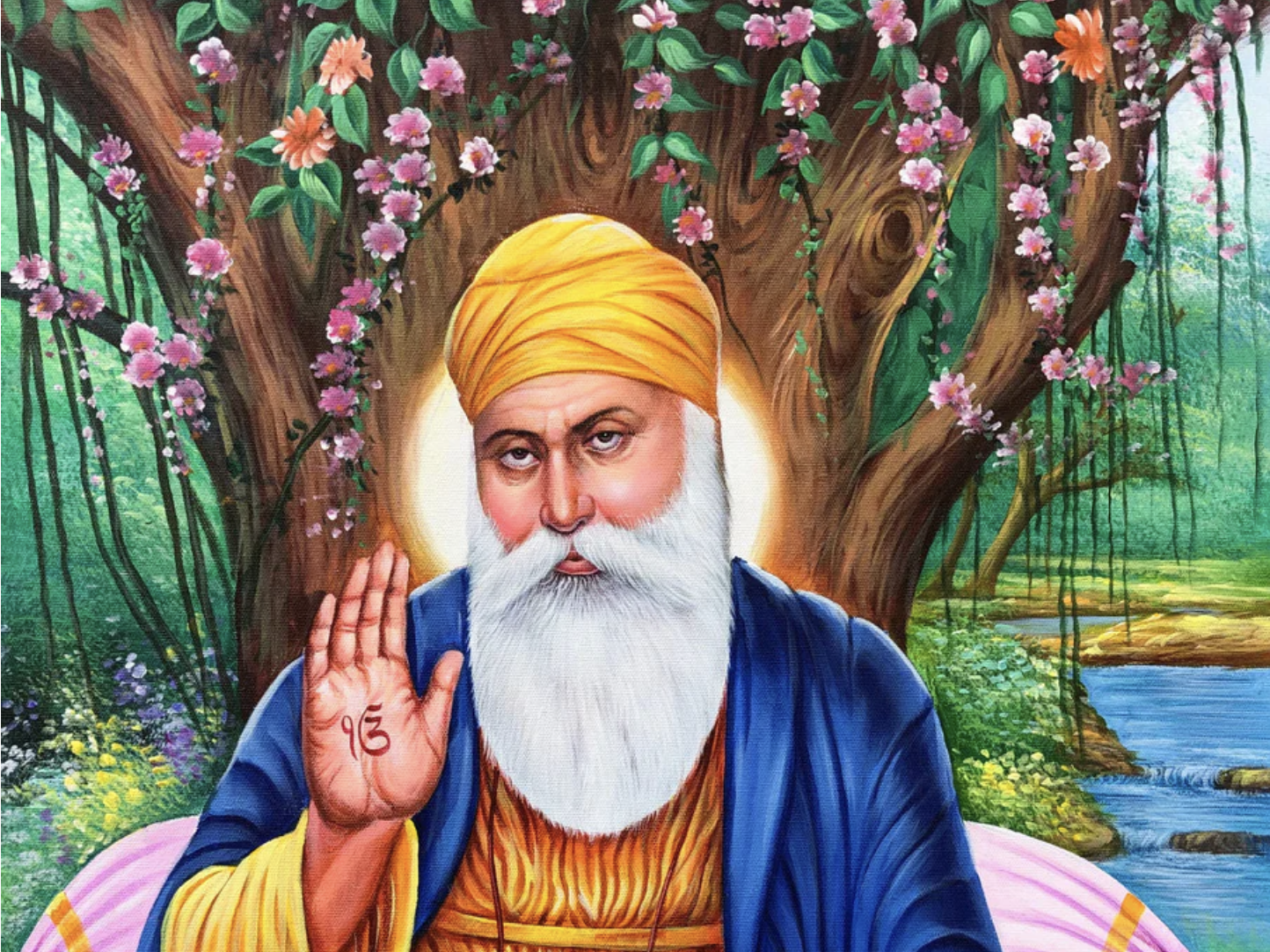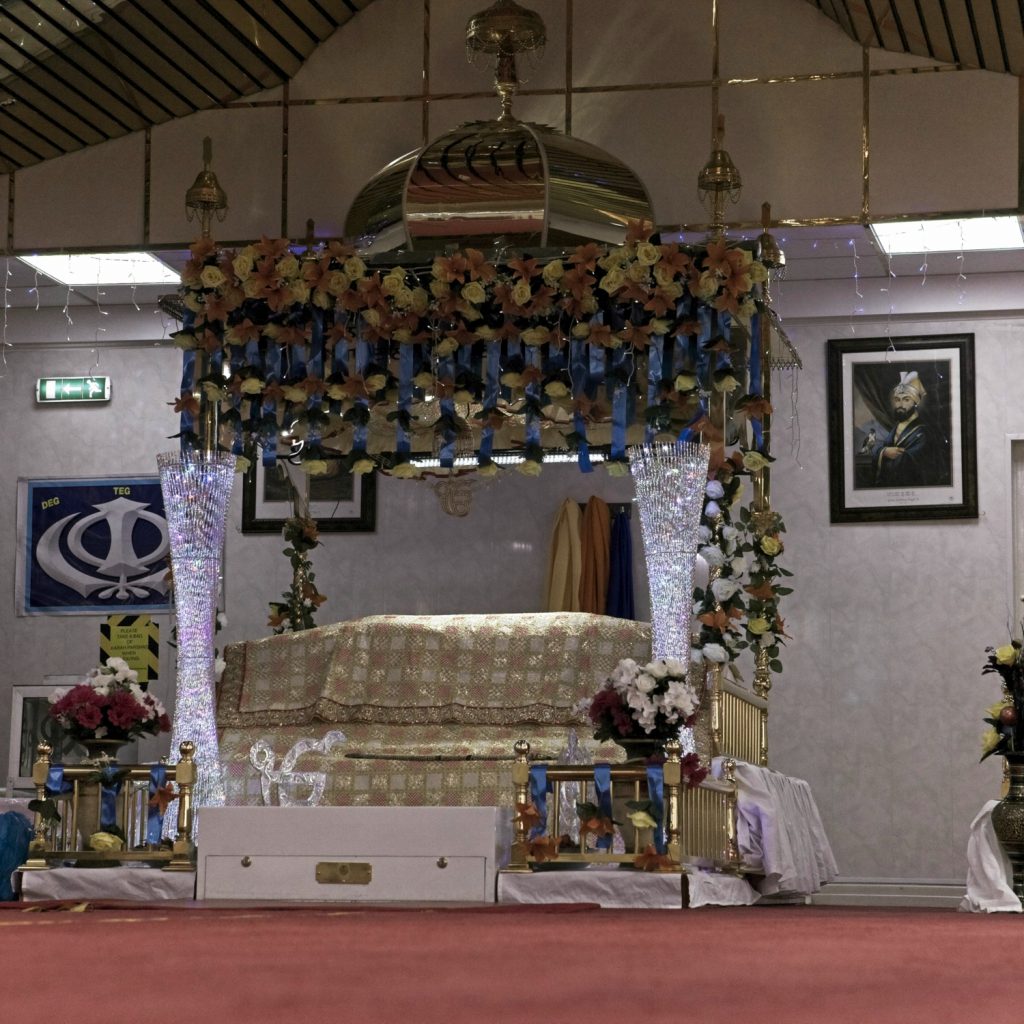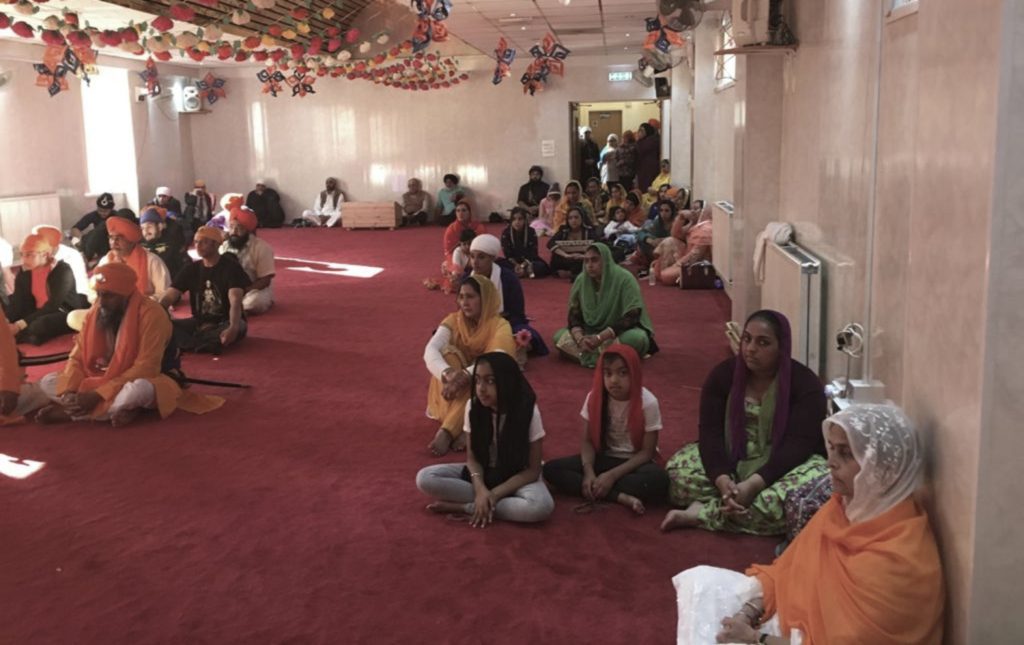
Preston’s Sikh community
………….. we’ve been resident in Preston since late 1950s. They have contributed to business, industry, public sector, community events and played their part in civic life. Guru Nanak Gurdwara Cultural & Recreation Centre was established in January 1981 to provide for the spiritual, cultural, and social needs of the Sikh community.
Sikhism & Values
Sri Guru Nanak Dev Ji was born in 1469 AD in the village of Rai Bhoe Talwandi, now the site of Gurudwara Nankana Sahib in Punjab, Pakistan.
Sri Guru Nanak Dev Ji was the founder of Sikhism and the first of the 10 Sikh Gurus.The last Guru, Guru Gobind Singh, said that there would be no more Gurus after him and Sikhs would be guided by the Sikh holy book, Sri Guru Granth Sahib.Sikhism, one of the youngest religions, through Guru Nanak’s teachings, the religion emphasises on the importance of leading a spiritual life without embracing monasticism. Sikhism is a monotheistic religion, which believes that God is shapeless, timeless and invisible. A religion which promotes the concept of One God, equality, justice and freedom for all. Some of the key practices of Sikhism are meditation and the recitation of Gurbani, the hymns composed by the Gurus.

His religious teaching advocated for justice and equality between male and females and the freedom for mankind to follow faith/beliefs without the fear of oppression and urges its followers to serve mankind.
Guru Nanak’s teaching is implicitly practised in three ways:
- ‘Kirat Karo‘: Making an honest living, without exploitation.
- ‘Vand Chako’: Sharing with others, helping those with less and who are in need.
- ‘Naam Japna’ [ or Nam Japna]: Remembering God at all times, meditating to control the Five Evils of human personality: Ego – Anger – Greed – Attachment – Lust.

Guru Nanak through his teachings introduce Sikhism Concept of Sewa
The word “Sewa” stands for “to serve/voluntary work “. In Sikhism sewa is imperative for spiritual development, a sense of duty or of being for others, a sense of dedication for the Sangat (Sikh congregation/community) and a means to seek God’s grace and blessings. True Sewa according to Sikh scriptures must be without desire (nishkam), in humility (nirmarta), with purity of intention (hirda suddh), with sincerity (chit lae) and in utter selflessness (vichon aap gavae).
The institution of the Guru Ka Langar or free kitchen was started by the first Sikh Guru, Guru Nanak. It was designed to uphold the principle of equality between all people regardless of religion, caste, colour, creed, age, gender or social status. The tradition of Langar expresses the ethics of sharing, community, inclusiveness and oneness of all humankind. “.
The Tenth Guru Sri Guru Gobind Singh Ji created the Khalsa identity in 1666. Khalsa literally means “Pure” and is referred to all baptised Sikhs.
The Khalsa is the Sikh brotherhood, and the basis of equality and aim to eradicate the castes systems. Guru Ji proclaim that Sikhs use the surnames, Singh for males meaning Lion or a brave person) and Kaur for females (meaning princess).
The Guru Ji gave Sikhs Social/Cultural Ethics. All Sikhs are required to abide by: – Democracy, (Sadh Sangat) Community decision by consensus – Human Rights, freedom of worship and divine self-dignity – Equality, equality between women and men and eradication of castes – Social Justice, ability to protect the rights of the vulnerable people – Freedom of conscience, in mind and body – Sewa, service for the welfare of humanity.
Further information sheets
ANY QUESTIONS : We’d love to hear from you. Email us at info.gngpreston@gmail.com or phone us on 01772 798395.